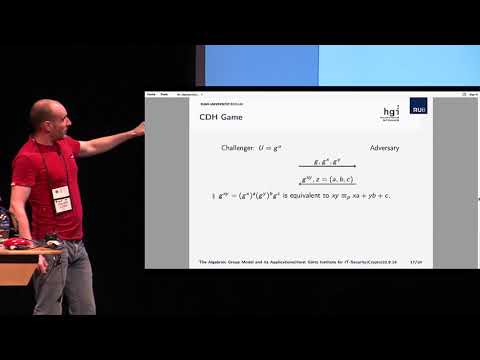Welcome to the resource topic for 2017/620
Title:
The Algebraic Group Model and its Applications
Authors: Georg Fuchsbauer, Eike Kiltz, Julian Loss
Abstract:One of the most important tools for assessing hardness assumptions in cryptography is the Generic Group Model (GGM). Over the past two decades, numerous assumptions have been analyzed within this model. While a proof in the GGM can certainly provide some measure of confidence in an assumption, its scope is rather limited since it does not capture group-specific algorithms that make use of the representation of the group. To overcome this limitation, we propose the Algebraic Group Model (AGM), a model that lies in between the standard model and the GGM. It is the first restricted model of computation covering group-specific algorithms yet allowing to derive simple and meaningful security statements. We show that several important assumptions, among them the Computational Diffie-Hellman, the Strong Diffie-Hellman, and the interactive LRSW assumptions, are equivalent to the Discrete Logarithm (DLog) assumption in the AGM. On the more practical side, we prove tight security reductions for two important schemes in the AGM to DLog or a variant thereof: the BLS signature scheme and Groth’s zero-knowledge SNARK (Eurocrypt '16), which is the most efficient SNARK for which only a proof in the GGM was known. Moreover, in combination with known lower bounds on the Discrete Logarithm assumption in the GGM, our results can be used to derive lower bounds for all the above-mentioned results in the GGM.
ePrint: https://eprint.iacr.org/2017/620
Talk: https://www.youtube.com/watch?v=AKJh_NPOkD8
Slides: https://crypto.iacr.org/2018/slides/The%20Algebraic%20Group%20Model%20and%20its%20Applications.pdf
See all topics related to this paper.
Feel free to post resources that are related to this paper below.
Example resources include: implementations, explanation materials, talks, slides, links to previous discussions on other websites.
For more information, see the rules for Resource Topics .
